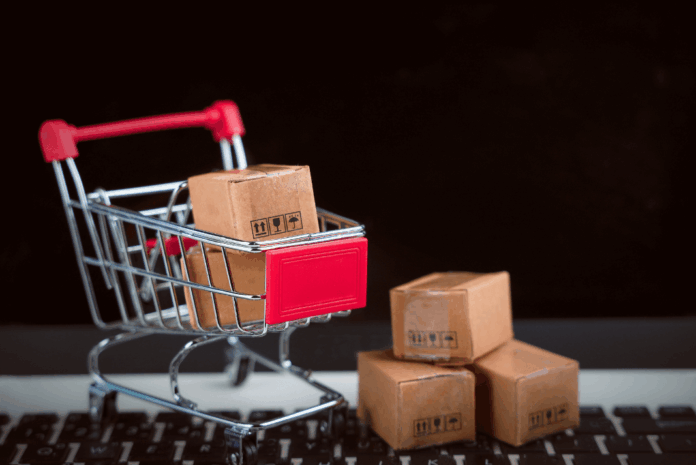Online marketplaces have transformed the retail landscape, especially for small businesses looking to grow without the overheads of a physical store or custom-built e-commerce site.
Whether you’re launching a product line or testing new markets, these platforms offer a low-risk, high-reward entry into online selling.
Here’s everything you need to know to get started and succeed.
What is an Online Marketplace?
An online marketplace is a digital platform where multiple sellers list their products or services in a single space, giving customers the convenience of browsing, comparing, and purchasing from different brands all in one place.
Unlike a traditional online store (which is managed by a single business), marketplaces like Amazon, Etsy, and eBay are operated by third parties who handle much of the technical and transactional backend. You supply the products, they provide the infrastructure.
Why Online Marketplaces Matter for Small Businesses
Selling through an online marketplace can be an efficient way to test the waters of e-commerce without diving into a full-scale online shop. Here’s why:
- Built-in traffic: Marketplaces have millions of active users already searching for products.
- Lower startup costs: No need to invest in your own e-commerce platform right away.
- Simplified logistics: Many marketplaces handle payment processing and offer fulfilment options.
- Brand credibility: Shoppers often trust marketplace sellers by association with platforms like Amazon or Etsy.
Top Online Marketplaces to Consider
Some of the UK’s most popular and accessible marketplaces include:
- Etsy – Perfect for handmade, custom, or vintage goods.
- eBay – Great for new and secondhand items, with built-in auction or fixed-price options.
- Amazon – The global giant, ideal for both niche products and mass-market items.
How to Make the Most of Marketplace Selling
Create Quality Listings
Your product listing is your storefront. Make it count:
- Use high-resolution images from multiple angles
- Write concise, benefit-led product descriptions
- Add keywords your customers might be searching for
- Use correct categories and product identifiers (like barcodes or UPCs)
Price Strategically
Factor in all applicable fees (listing, transaction, referral) so you don’t lose margin. Competitor research can help you find the sweet spot between affordability and profitability.
Deliver Excellent Service
Prompt fulfilment, clear communication, and easy returns go a long way in building a strong seller rating, which in turn, impacts how often your products appear in search results.
Monitor Performance
Most marketplaces provide dashboards and analytics tools. Use them to:
- Track which products are performing best
- Spot seasonal demand spikes
- Improve titles, pricing, and imagery over time
Moving Beyond Online Marketplaces: Build Your Own Online Store
While marketplaces offer a great starting point, building your own e-commerce site is a natural next step for long-term growth and brand control.
Platforms like Shopify, BigCommerce, or WooCommerce allow you to create a customised store with your branding, customer database, and tailored marketing. You can even integrate your marketplace listings with your own store to streamline inventory and fulfilment.
Handling Orders and Shipping
Think carefully about how you’ll get products to customers:
- Fulfil orders yourself if you want more control and lower fees
- Use fulfilment services (like Amazon FBA) to outsource storage, shipping, and returns
- Offer clear shipping policies to manage expectations (especially for international customers)
Building Loyalty Through Support
Positive customer experiences don’t stop at the point of purchase. Offer easy-to-access support, be responsive to messages, and encourage feedback through reviews. It builds trust and trust builds repeat business.
Consider the Costs
Fees can vary widely depending on the platform:
- Listing fees – charged per item or per month
- Commission – typically a percentage of each sale
- Subscription fees – some marketplaces (like Amazon) offer “pro seller” accounts with extra tools
Make sure you calculate the full cost of selling on each platform to maintain healthy profit margins.
International Online Marketplace Selling
Want to sell outside the UK? Many platforms make cross-border sales simple, but you’ll need to consider:
- VAT and import/export rules
- Shipping logistics and timeframes
- Customer expectations in different regions
Start with localised versions of major marketplaces and research your obligations before launching internationally.
Are Online Marketplaces Right for Your Business?
If you’re not yet selling digitally, online marketplaces are one of the easiest ways to get started. They can help you:
- Test new products
- Reach customers faster
- Scale with fewer resources
- Learn what sells (and what doesn’t)
And even if you already have a website, marketplaces can still complement your existing sales by reaching new audiences and unlocking untapped markets.
Getting Started with Online Marketplaces: Start Smart, Scale Fast
Use online marketplaces to learn fast, build reputation, and generate revenue while you develop your own branded e-commerce ecosystem.
Whether you start on Etsy or Amazon, what matters is getting your products in front of the right people, and online marketplaces are where those people are already shopping.
Small businesses access unsecured, fast funding from Got Capital. As an alternative lender, Got Capital offers financing solutions specifically designed for and catered to the needs of SMEs, free from personal guarantees.

